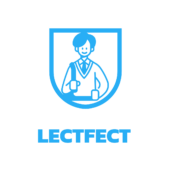In today’s fast-paced world, where communication knows no boundaries, the ability to speak multiple languages is a valuable asset. With the right language strategies at hand, individuals can unlock new opportunities for personal growth, cultural understanding, and professional advancement. From immersive language immersion programs to innovative online resources, there is a plethora of strategies available to cater to diverse learning styles and goals.
Language Learning Strategies
The Role of Cognitive Strategies
 Cognitive strategies play a pivotal role in language learning as they involve mental processes that aid in acquiring, retaining, and recalling information. When it comes to learning a new language, individuals can harness cognitive strategies such as visualization, association, and categorization to enhance their vocabulary acquisition and comprehension skills. By visualizing words, associating them with familiar concepts, and categorizing them based on similarities, learners can effectively store and retrieve information, thereby boosting their language proficiency.
Cognitive strategies play a pivotal role in language learning as they involve mental processes that aid in acquiring, retaining, and recalling information. When it comes to learning a new language, individuals can harness cognitive strategies such as visualization, association, and categorization to enhance their vocabulary acquisition and comprehension skills. By visualizing words, associating them with familiar concepts, and categorizing them based on similarities, learners can effectively store and retrieve information, thereby boosting their language proficiency.
The Importance of Metacognitive Strategies
Metacognitive strategies hold significant importance in language learning as they involve self-regulation and reflective practices that help learners monitor and control their learning process. Engaging in metacognitive strategies such as setting language learning goals, monitoring progress, and adjusting learning strategies based on performance feedback can enhance one’s overall language learning experience. By being aware of their learning strategies, strengths, and weaknesses, individuals can optimize their language learning journey and foster a deeper understanding of the language.
Key Language Learning for Success
Effective language strategies play a crucial role in enhancing proficiency and accelerating progress in acquiring a new language. Cognitive strategies like visualization, association, and categorization aid in improving vocabulary acquisition and comprehension skills. Metacognitive strategies, such as goal setting and progress monitoring, help learners regulate and reflect on their language learning process. By combining cognitive and metacognitive strategies, individuals can optimize their language learning journey, leading to a deeper understanding of the language and improved overall proficiency.
Memory Techniques for Vocabulary Retention
 Memory techniques are essential for retaining vocabulary effectively. Some strategies that can help in this process include:
Memory techniques are essential for retaining vocabulary effectively. Some strategies that can help in this process include:
- Spaced Repetition: Studing vocabulary at increasing intervals to strengthen memory retention.
- Mnemonics: Creating associations or using visual imagery to link new words with something familiar.
- Chunking: Grouping words into meaningful clusters to aid in easier recall.
- Immersion: Surrounding oneself with the language through media, conversations, or activities to reinforce vocabulary retention.
- Language Exchange: Partnering with native speakers or other learners to practice speaking and receive feedback.
- Role-Playing: Simulating real-life scenarios to practice language skills in context.
- Utilizing Language Apps: Leveraging language learning applications for interactive exercises, games, and communication practice.
- Joining Language Communities: Participating in language exchange groups, forums, or social media platforms to interact with other learners and native speakers.
Technology and Language Learning
Digital Tools That Enhance Language Acquisition
Employing digital tools is imperative in the modern era for optimizing language acquisition efforts. Utilizing platforms like language learning software, online dictionaries, and grammar checkers can significantly aid learners in improving their language proficiency. These tools offer interactive exercises, instant translations, and grammar corrections, allowing individuals to practice and refine their language skills effectively. Moreover, language learning platforms often incorporate gamified elements that make the learning process engaging and enjoyable.
Mobile Apps and Their Impact on Continuous Learning
 Mobile applications have revolutionized language learning by offering convenient and accessible ways to practice languages on-the-go. These apps provide features like flashcards, audio exercises, speech recognition technology, and chatbots that simulate real-life conversations. By enabling users to learn anytime and anywhere, mobile apps promote continuous learning and consistent practice, essential for language skill development. The flexibility and personalized learning experience offered by these apps cater to diverse learning styles, making language acquisition more engaging and sustainable.Embarking on a journey to learn a new language can be both exciting and challenging. One of the key factors that can significantly impact the effectiveness of language learning is the strategies employed along the way. By utilizing proven language strategies, learners can enhance their proficiency and accelerate their progress. Whether it’s mastering vocabulary, improving pronunciation, or grasping grammar rules, having a solid set of strategies can make a world of difference in one’s language learning experience.
Mobile applications have revolutionized language learning by offering convenient and accessible ways to practice languages on-the-go. These apps provide features like flashcards, audio exercises, speech recognition technology, and chatbots that simulate real-life conversations. By enabling users to learn anytime and anywhere, mobile apps promote continuous learning and consistent practice, essential for language skill development. The flexibility and personalized learning experience offered by these apps cater to diverse learning styles, making language acquisition more engaging and sustainable.Embarking on a journey to learn a new language can be both exciting and challenging. One of the key factors that can significantly impact the effectiveness of language learning is the strategies employed along the way. By utilizing proven language strategies, learners can enhance their proficiency and accelerate their progress. Whether it’s mastering vocabulary, improving pronunciation, or grasping grammar rules, having a solid set of strategies can make a world of difference in one’s language learning experience.

